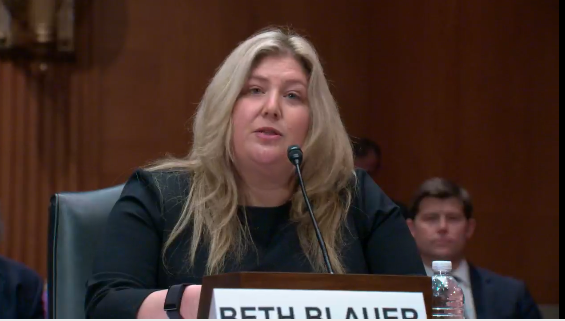
Putting artificial intelligence to work in government requires an investment in core data practices at all levels of public service.
That’s what GovEx founder Beth Blauer told the U.S. Senate Homeland Security and Governmental Affairs Committee this week as part of the group’s investigation into using AI to improve government services and customer experience. At the beginning of her remarks, Blauer noted that her testimony reflected her “professional and personal expertise and are not necessarily a position of Johns Hopkins University or Medicine” (Watch the hearing here.)
“When public institutions attempt to dive into the deep end of analytics, automation, or machine learning without first building a strong data practice, they run the risk of propagating disparate impacts, poorly informing decisions, and creating bad outcomes,” said Blauer, who oversees GovEx and its sister center, the Bloomberg Center for Public Innovation, as the Associate Vice Provost for Public Sector Innovation at Johns Hopkins University.
“When done right, a strong data practice will lead to safer AI implementation that will anticipate resident need and promote safer, more efficient, healthier, thriving communities,” she told the committee.
Blauer testified alongside other AI and data experts, Jennifer Pahlka, author of “Recoding America: Why Government is Falling in the Digital Age and How We Can Do Better,” and Dr. Beth Noveck, chief innovation officer for the State of New Jersey and a professor of experiential AI at Northeastern University.
To reduce potential risks of implementing AI in government, GovEx advises city officials around the world to designate senior AI leaders, share early guidance, explore existing resources, and create space to experiment. This guidance, informed by work with Bloomberg Philanthropies and Bloomberg Cities, can be equally applied to federal operations, Blauer said the federal government can apply these same principles.
“We are learning as we go,” she said. “An iterative stance with reflection and learning periods baked into the process creates fertile ground for cautious experimentation.”



